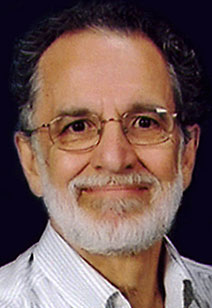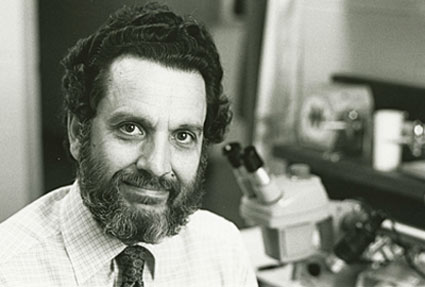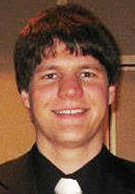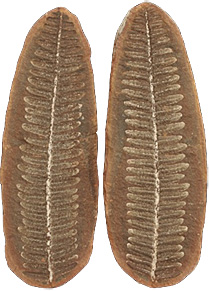
Former Raymond H. Herzog Professor of Science and Professor Emeritus of Biology Michael LaMarca passed away Feb. 9 of complications from a stroke. A resident of Rochester, Minn., where he made his home in retirement, he was 85.
A specialist in reproduction and developmental biology, LaMarca joined the Lawrence faculty in 1965 and taught with distinction until he retired in 1995. His career as a scientist and teacher was distinguished by his legendary commitment to the disciplined study of the living world. He was recognized with Lawrence’s Excellence in Teaching Award in 1983.
From the study of amphibians to the exploration of human reproduction, LaMarca guided students for 30 years in both the technical and ethical investigation of biological science. His enthusiastic teaching style impacted thousands of students, especially those he mentored through independent study, many of whom went on to distinguished careers of their own as doctors, researchers and educators.
He served as the scientific director of the in vitro fertilization program at Appleton Medical Center from 1985-95 and his guidance was critical to the impressive successes of northeast Wisconsin’s first such program. Under LaMarca’s tutelage, numerous Lawrence students were able to begin their own research careers there.
LaMarca’s own research earned him a place of influence and honor in the scientific community and took him to laboratories and research centers around the country, including Argonne National Laboratory, the Woods Hole Oceanographic Institution and Harvard University School of Medicine, among others.

A native of Jamestown, N.Y., LaMarca was the first member of his family to attend college, earning a degree in biology from the State University of New York at Albany. He spent four years in the Air Force during the Korean War, serving active duty stateside as a meteorological officer while achieving the rank of lieutenant. He went on to earn his Ph.D in zoology at Cornell University and spent two years teaching at Rutgers University before joining the Lawrence faculty.
He is survived by his wife of 63 years, Joan LaMarca, daughters Cathy Stroebel, Rochester, Minn., and Nancy Gordon, Eden Prairie, Minn., and four grandchildren: Ben, Hannah and Andy Stroebel; and Zach Gordon. He was preceded in death by his oldest daughter, Mary LaMarca.
The family has requested memorials be directed to the National Science Teachers Association or the National Academy of Sciences.
About Lawrence University
Founded in 1847, Lawrence University uniquely integrates a college of liberal arts and sciences with a nationally recognized conservatory of music, both devoted exclusively to undergraduate education. It was selected for inclusion in the book “Colleges That Change Lives: 40 Schools That Will Change the Way You Think About College.” Engaged learning, the development of multiple interests and community outreach are central to the Lawrence experience. Lawrence draws its 1,500 students from nearly every state and more than 50 countries.

